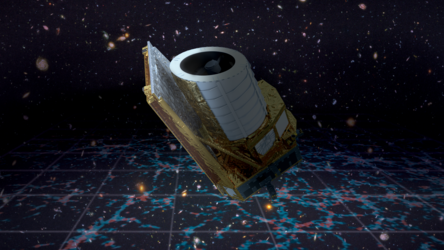Meet the teams: MAH
The Microbiology And Hygiene (MAH) team is composed of three PhD candidates from the Aristotle University of Thessaloniki. The team aims to study the effect of hypergravity on the microbial heat resistance and motility behavior.
![]()
The effect of hypergravity on microbial heat resistance and motility![]()
| University | Aristotle University of Thessaloniki |
| Endorsing professor |
Konstantinos Koutsoumanis Aristotle University of Thessaloniki |
| ELGRA mentor |
Betty V. Nusgens University of Liège, Belgium |
| Team | Zafiro Aspridou, Myrsini Kakagianni, Dafni Dimakopoulou-Papazoglou |

The MAH team intends to investigate if the exposure of a microorganism to hypergravity conditions affects its thermal resistance and motility. There is already scientific research ongoing on the effect of hypergravity on other microbial traits but the questions of the MAH team have not been answered. Heat resistance is a really important property of microorganisms which determines the time duration that microbial cells withstand the high temperature of a process before they die. Each parameter that can affect microorganisms’ sensitivity to heat has to be studied since microbial traits, such as invasion and virulence for pathogens, spore germination for endospore formers, sensitivity to other stresses, cross-protection phenomena and biofilm formation have been found to be related with heat resistance.

In order to determine how hypergravity affects the heat resistance of vegetative (mesophilic) and spores of thermophilic bacteria, an oil bath will be loaded on a gondola of the LDC to perform heat inactivation trials under hypergravity conditions. Different combinations of gravity levels (5, 10, 20xg) and temperatures (57, 65, 121, 125°C) will be used in order to obtain survival data based on the plating method after certain duration of the trials. The results of this experiment will help adjust sterilization procedures, find new unique characteristics of microorganisms and finally, evaluate the search of life in extraterrestrial environments.

Microbial motility, arguably the most fascinating property of living microorganisms, benefits bacteria through the capacity to move towards favorable environments and to avoid detrimental conditions, as well as contributes to dispersal and colonization of new niches, thus enabling successful competition with other microorganisms. Many bacteria are motile by virtue of peritrichous or polar flagella, and motility is generally regarded as a virulence factor, facilitating the colonization of host organisms or target organs by pathogenic bacteria. Apart from that, motility is found critical for biofilm development and maturation contributing indirectly to increased resistance of the motile population. In order to determine how hypergravity affects the microbial swimming motility behavior, a microscope equipped with a 100x objective and a CCD camera will be loaded on a gondola of the LDC to perform motility trials under hypergravity conditions. Microscopic examination of the cells under various gravity levels (2, 5, 10xg) at ambient temperature will be conducted in order to obtain videos and, after image analysis, to extract data concerning cells’ speed, direction e.t.c. From a health and safety point of view, the study of bacterial motility and specific organelles, such as flagella can help in order to develop organelle and mechanism based approaches to cope with infections.















 Germany
Germany
 Austria
Austria
 Belgium
Belgium
 Denmark
Denmark
 Spain
Spain
 Estonia
Estonia
 Finland
Finland
 France
France
 Greece
Greece
 Hungary
Hungary
 Ireland
Ireland
 Italy
Italy
 Luxembourg
Luxembourg
 Norway
Norway
 The Netherlands
The Netherlands
 Poland
Poland
 Portugal
Portugal
 Czechia
Czechia
 Romania
Romania
 United Kingdom
United Kingdom
 Slovenia
Slovenia
 Sweden
Sweden
 Switzerland
Switzerland
























